Health authorities in Madrid are expanding restrictions on movement to a further eight areas of the Spanish capital, which is leading the country’s contagion curve, despite a recommendation from the national government that the partial lockdown should apply to all the city.
Over 850,000 residents in 37 neighborhoods have been confined this week to their areas unless they have a reason to go elsewhere, while maximum capacity in shops and restaurants has been reduced.
Those limitations will now be expanded to 160,000 more people in areas where more than 1,000 people per 100,000 residents have tested positive for the new virus in the past two weeks — the highest rates in Europe — the Madrid regional government announced Friday.
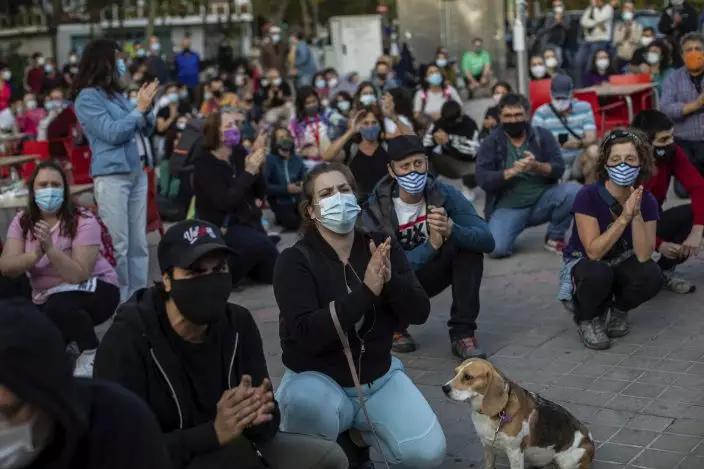
Residents of restricted mobility areas in Madrid due to the coronavirus outbreak gather during a protest to demand more resources for public health system and against social inequality in the southern neighbourhood of Vallecas, Madrid, Spain, Thursday, Sept. 24, 2020. The regional government is set to announce Friday new restrictions in Madrid, where gatherings are limited to a maximum of 6 people and more than 850,000 residents have been partially locked down this week. (AP PhotoBernat Armangue)
Throughout Madrid and its surrounding region, gatherings are limited to a maximum of 6 people.
In a hastily organized press conference, national Health Minister Salvador Illa said that the Spanish government was recommending tougher measures, including a partial lockdown, for the whole of Madrid and its 3.3 million residents, not just heavily affected areas.
The limitations have been protested by locals who claim that they are being targeted because they live in poor neighborhoods with denser population and worse infrastructure than more affluent areas, and where more people use public transportation to get to work.
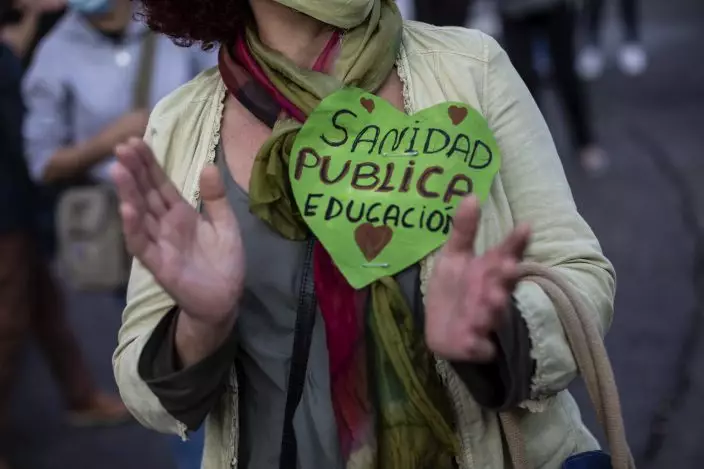
Residents of restricted mobility areas in Madrid due to the coronavirus outbreak gather during a protest to demand more resources for public health system and against social inequality in the southern neighbourhood of Vallecas, Madrid, Spain, Thursday, Sept. 24, 2020. The regional government is set to announce Friday new restrictions in Madrid, where gatherings are limited to a maximum of 6 people and more than 850,000 residents have been partially locked down this week. The text reads in Spanish "public health & education". (AP PhotoBernat Armangue)
Politicians at both national and regional levels have been at odds over the response since the first day of the pandemic, although they recently agreed to negotiate a coordinated response to the worrying outbreaks in Madrid. The truce lasted less than a week, with Friday’s competing press conferences conveying a message of disagreement and political blame-exchange.
Spain is fighting a cumulative coronavirus caseload over 700,000 with the worry focusing in Madrid and its surrounding region, where more than one third of the new infections are happening. The total death toll since the start of the pandemic reached 31,118 on Thursday. Because of limited testing and missed cases, among other factors, the figures don’t capture the true extent of the damage wrought by the virus.
Follow AP’s pandemic coverage at http://apnews.com/VirusOutbreak and https://apnews.com/UnderstandingtheOutbreak
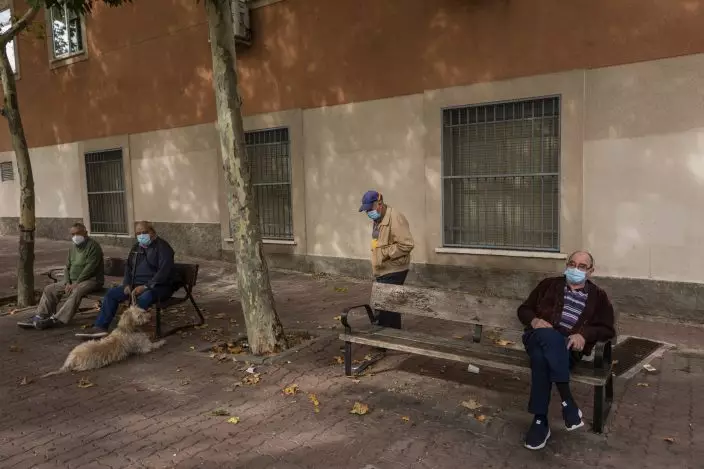
Elders wearing face masks to prevent the spread of the coronavirus sit on a park in the southern neighbourhood of Vallecas in Madrid, Spain, Wednesday, Sept. 23, 2020. Madrid is poised to extend its restrictions on movement to more neighborhoods, due to a surge in new cases in other districts and despite an outcry from residents over discrimination. Police on Monday deployed to 37 working-class neighborhoods that have seen 14-day transmission rates above 1,000 per 100,000 inhabitants. (AP PhotoBernat Armangue)
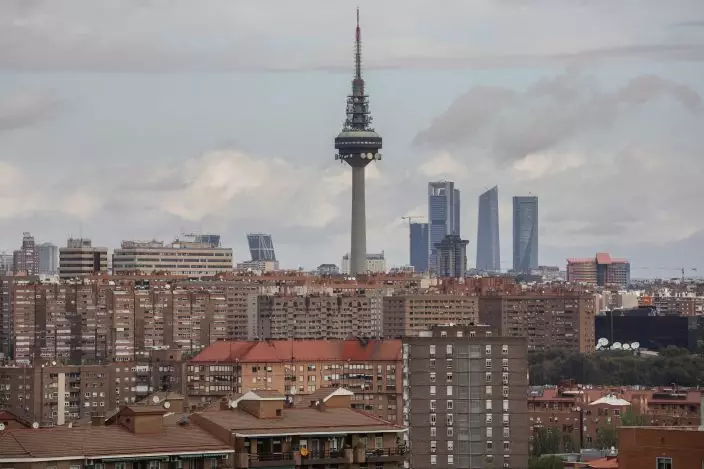
View of Madrid, Spain, Wednesday, Sept. 23, 2020. Madrid is poised to extend its restrictions on movement to more neighborhoods, due to a surge in new cases in other districts and despite an outcry from residents over discrimination. Police on Monday deployed to 37 working-class neighborhoods that have seen 14-day transmission rates above 1,000 per 100,000 inhabitants. (AP PhotoBernat Armangue)
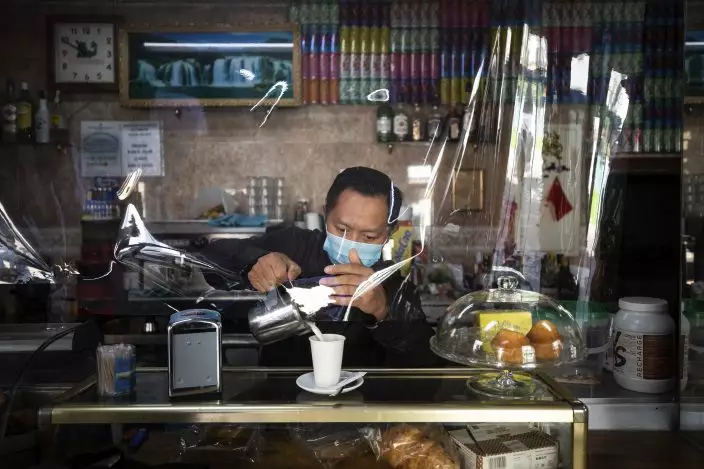
A waiter wearing a face mask and behind a plastic curtain to prevent the spread of coronavirus serves a coffee at a bar in the southern neighbourhood of Vallecas in Madrid, Spain, Tuesday, Sept. 22, 2020. Madrid is poised to extend its restrictions on movement to more neighborhoods, due to a surge in new cases in other districts and despite an outcry from residents over discrimination. Police on Monday deployed to 37 working-class neighborhoods that have seen 14-day transmission rates above 1,000 per 100,000 inhabitants. (AP PhotoBernat Armangue)


